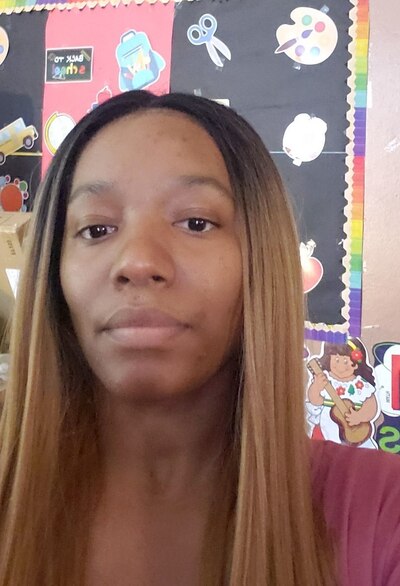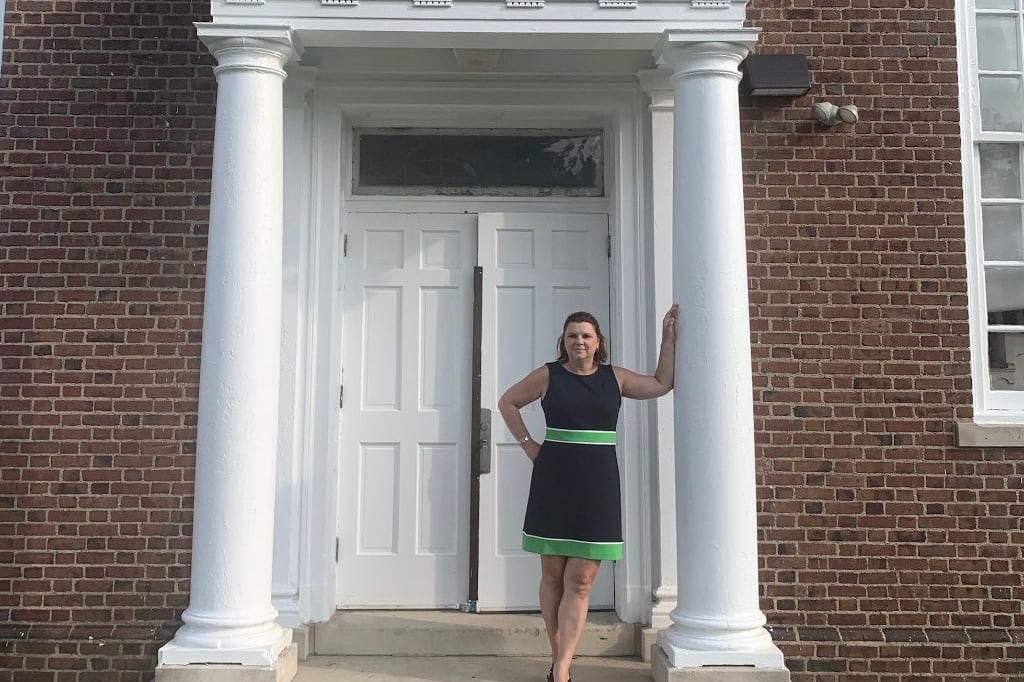Before the coronavirus pandemic, Leslie Spina’s five Kinder Academy child care centers were always full with a waiting list. Now, enrollment has dropped by more than half — from 500 to 215.
“It’s not sustainable at numbers like this,” Spina said. “We hope that people will come back, but we understand if they don’t.”
As the school year gets underway, child care and early education providers and advocates in Philadelphia characterize the state of the industry as precarious. Families are not enrolling their children in the same numbers as before, meaning centers’ income is down even as their pandemic-related costs go up.
And the cost crunch is about to get worse.
Early childhood education is supported in Pennsylvania through a variety of federal, state, and local subsidies. Programs include federal Head Start, the state’s Child Care Works, and the city’s early childhood program known as PHLPreK. Most Philadelphia centers have students who qualify for one or more of these programs and the bulk of their revenue comes from the subsidies, supplemented by parental co-pays and some full-pay clients.
Until August, the state paid subsidies for all students who were enrolled before Gov. Tom Wolf ordered most centers to close in March. Starting this month, however, the state decided to pay only for students who actually attend.
Center operators are bracing for the drop in revenue, which will show up in the check they get at the beginning of October.
“It’s more than precarious. I think the industry is about to go off a cliff,” said Bevin Parker-Cerkez of the city’s Reinvestment Fund, a financial institution with a mission to help underserved communities through investments, partnerships, and expertise. Since the pandemic started, the fund has made $5 million in grants to 415 child care and early education providers in Philadelphia to help them stay afloat.
In August, the fund surveyed its grantees, which encompass the gamut of providers, from small home-based family care homes to individual centers to larger multi-site organizations like Spina’s. Parker-Cerkez said 379 of the 415 grantees responded. And they reported that their pre-pandemic enrollment had shrunk by 27% — from 18,766 to 13,666.
“I think we’re in a dire situation,” said Donna Cooper, executive director of the advocacy group Public Citizens for Children and Youth. She said the state isn’t looking ahead to the long-term consequences.
“We need the state to assiduously look at the data in September on the share of children attending child care, and if parents still demonstrate trepidation they need to fund these centers or they won’t be there when the economy reopens,” she said.
Statewide, enrollment is down by 12,000 students, and 700 of 7000 centers have yet to reopen, with 260 already saying they are closing permanently.
Beyond the change in the state reimbursement policy, the larger issue is inadequate federal and state support for an industry that is vital not only to child development but to the reopening of the economy. This is a prime example of how the pandemic and government decisions of where to direct stimulus funds reflects — and is exacerbating — the country’s yawning inequality, Cooper said.
“Programs that run in the subsidy system are the hardest hit by the enrollment problem,” Cooper said. Many workers who used private child care, she said, continued to pay their centers even if they were not sending their children.
But the subsidized system, which largely serves lower-paid workers, “has been hit very hard,” Cooper said. Its families “are the people who work in the restaurant, retail, warehousing industry...many are school district employees. We know all these people need to go back to work. Everybody wants the entire economy to reopen and for that to happen, subsidized child care has to reopen.”
Spina’s Kinder Academies, located in Northeast Philadelphia, are a case in point.
Her centers serve primarily immigrant families; Chinese in Mayfair, Brazilian in Rhawnhurst. The Castor location is dominated by families from the Middle East, and she has several Arabic speakers on staff. They all get high marks from Pennsylvania’s Keystone Stars rating system.
She notes that the centers are more than places of learning. They each serve 10 meals a week and maintain a food pantry. “We make sure they have health insurance,” she said. “We sign them up for WIC . We have people who are food insecure, housing insecure, we’re always doing the work to help people get what they need to survive.”
She understands people’s reluctance to send their children back now. They are out of work, and they fear COVID-19. To make up for the enrollment decline, she — like other child care providers — has taken in school-age children all day and are supervising their virtual education. The state changed its reimbursement, in part, because it was expecting that school-age children would make up for the drop in preschoolers, but that hasn’t happened.
Plus, “The reimbursement rate doesn’t make up for the cost of all-day care,” Spina said.
Spina has plans to open a sixth center in Oxford Circle, in which she has already invested $2 million, rescuing an abandoned church from planned demolition and the property from yet another convenience store. “Now it will be a child care and family support center, as well as a site for teachers’ continuing education,” she said.
But now those plans are on hold despite a shortage of slots — before the pandemic, Cooper said there was a waiting list of 13,000 for subsidized child care spots in Philadelphia. “There is tons more need than is available in Philadelphia in the regular times,” she said.
Not only does Spina worry that the new center will never open, she fears she may have to close some of her other sites.
“I hope I don’t regret spending this money and shutting all but one down,” she said. “Maybe we should have done that.”

LaTonta Godboldt is another provider who is coping with similar issues. She built a successful and highly rated family child care business called Small Wonders in her North Philadelphia home, and she was planning to open a center for 30 or so students nearby.
“I was in the process of expanding to a larger center, I’ve been paying rent on the building through the entire pandemic,” she said. She had been interviewing staff; to maintain her Keystone 4 Star rating she needs eight adults.
Godboldt has been getting help from the Reinvestment Fund, but at this point the picture doesn’t look good.
“They’re predicting $200,000 in losses for that center” unless things change quickly, she said. Current government policy regarding child care, Godboldt added, constitutes “a tremendous blow to a [social and economic] necessity that is already underfunded. The amount of money we’re getting to sustain our programs is not even close.”
The Reinvestment Fund asked operators how long they thought they could remain open under current conditions without further government aid and in light of the state’s change in policy regarding the reimbursement rate. The average, Parker-Cerkez said, was seven months. It also asked providers the top four factors they used to reach that estimation. Most said they had figured in the unpredictable environment, their financial projections, and how long they could last being unprofitable. Half said that they expected to contribute their own funds or take out personal loans.
Pennsylvania got $106 million as part of the federal coronavirus relief package specifically designated for childcare. That money was distributed to programs in two phases during June and July. In addition, the state designated an additional $125 million out of its federal COVID-19 pot for childcare; that money was given out in August and September.
Providers also applied for and received loans through the Paycheck Protection Program. (Chalkbeat is a nonprofit and also received federal paycheck protection funding.)
Cooper said that the state still has $1 billion in federal coronavirus money that is unspent, and child care is only one of many sectors, including hospitals and small businesses, that need help. Requests for a share of that money total $40 billion, she said.
A spokeswoman for the state’s department of human services said in an email that the purpose of the Child Care Works program “is to support families that need help paying for child care. CCW is not a child care provider support.
Reverting back to paying centers based on actual attendance “is necessary to comply with federal regulations [and] allow [other] families in need of care to enroll.”
She pointed out that since the pandemic closed most centers in March, the state has paid $590 million to child care providers, including $370 million in CCW subsidy payments from March through August, regardless of whether a center was operating.
Philadelphia’s office of early childhood education said that it is “working...to address immediate family and child care needs while also thinking about long-term sustainability” and is spreading the word about the availability of state subsidies and affordable child care opportunities in an effort to boost the enrollments.
The HEROES Act passed by the U.S. House in the spring included $7 billion in a Child Care Development Block Grant, but it was not taken up by the U.S. Senate. The Child Care is Essential Act, introduced in May by two Democratic House members, includes $50 billion for child care, but it was never acted on.
To what extent child care and early childhood might be included in additional pandemic-related stimulus legislation now being negotiated in Washington is not known.
For Spina, it is a matter of priorities.
“The government has bailed out the airline, banking and auto industries,” Spina said. “I have great hope that our society also values our children, especially those who are most at risk, and the state, federal and city governments will come forward. If we can survive, we’ll be able to thrive.”






